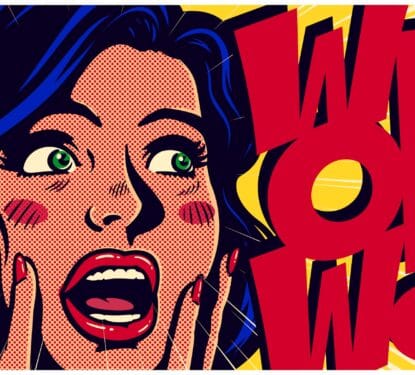“The city is what it is because our citizens are what they are,” said Plato, the Ancient Greek philosopher, almost 2,500 years ago. Today, cities are still shaped by their citizens but as our urban society becomes increasingly digital, who or what the citizens are is becoming less clear.
Stolen identities, data beaches, voter fraud, invasions of privacy and the hacking of physical systems in our buildings, cities and grids are rife. By faking human or digital identities and by taking more information than is necessary during digital interactions we have lost track of who we are dealing with and whether we can trust them. The situation is rapidly sprilling, hacks and breaches that would have been record-breaking a decade ago seem to happen on a monthly basis today.
As Memoori and many experts in the field have highlighted, we are neglecting these vulnerabilities as we race into this smart future. However, as is often the case in human history, the problems caused by one technology are eventually solved by another technology. In the story of the internet of things (IoT) and smart cities, we may have found our saviour in the blockchain.
“Trust is a fundamental part of the value chain in our world. We establish trust through a wide
variety of intermediaries that exist with the sole purpose of aggregating and validating information. Blockchain technology has now made it possible to redefine the enterprise of ‘trust’ by making information inherently trustworthy,” says Neel Ratan, Regional Managing Partner and Government Leader, PwC. “The blockchain also promises to deliver IT solutions which are more robust, resilient, tamper-proof, efficient and transparent. But can it make our cities smarter?” he asks.
The smart city promises to enhance the quality and performance of urban services by connecting everything and adding intelligence to our systems. All too often however, this connectivity is brings vulnerabilities that undermine the very reasons for implementing smart technology in the first place. As the 3rd part of our April Blockchain Series we explore how the technology could change our urban societies.
Blockchain Cities
In February 2017, Dubai announced a collaboration with IBM for implementing a test phase of blockchain. The first objective of this test was for tracking the import and export of goods in the port city, by replacing paper based contracts with the smart contracts. The solution is uses Hyperledger Fabric and IBM Cloud to enable real-time access to shipping data for all stakeholders and uses Watson IoT for device-reported data to validate the smart contracts. The system adds security and efficiency to port processes by bringing the trade finance cycle onto a single blockchain platform.
In Moscow, blockchain is being implemented into an e-voting system. As far back as 2014, the Active Citizen project allows Muscovites to better participate in city management decisions and urban planning. The blockchain enabled system uses an encrypted algorithm to timestamp votes and authenticates voters in real-time, thereby highlighting illegitimate votes straight away.
“We are excited to improve credibility and transparency of [the] e-voting system in Moscow by introducing blockchain. We believe that blockchain will increase trust between the citizens and the government. We aim to hit 2 million users in the near future who are ready to influence the city life,” says Artem Ermolaev, CIO of the city of Moscow.
The Baltic nation of Estonia may well be the most advanced digital nation in the world. Along with being the birthplace of Skype, the relatively small nation has also become a blockchain pioneer. Estonia was already highly digitized when it introduced blockchain in order to give citizens full control of their data. In one example, Estonians can now access all their healthcare records online and see exactly who has viewed or edited them due to the transparency offered by blockchain. Anyone found accessing information without good reason can be prosecuted.
Today, almost every public service in Estonia is digitalized. Every citizen has a secure digital identity that enables them to access the services easily. This has brought about unprecedented transparency, thereby fostering greater trust between the citizens and their government and enriching the democratic process.
“For cities, the opportunities for blockchain use are endless,” said Shekkar Gupta, COO for The Solutions Group. Who went on to list a wide variety of uses for blockchain, including waste management, managing parking, welfare, land titling and municipal bonds. Gupta added, “while it may not solve all government-related issues, leaders must give it a chance."

The Sharing Economy
One of the most disruptive elements of the past decade has been the sharing economy. Firms like Uber and Airbnb have rewritten the rules of personal transport and accommodation respectively. Such services allow anyone to use their vehicle, home, knowledge or time to provide services to others for a price. This trend is redistributing money like never before and its success suggests that we should expect more of the same in the years and decades to come.
The premise of the sharing economy is that communities (towns, cities, and so on) can control their own destinies and promote local commerce – as well as keep more of the economic value they generate. Recent initiatives are now demonstrating how blockchain can add a layer of trust that will super-charge the sharing economy and unleash a new generation of community driven services.
Digital Town is one such initiative, it aims to create a smart city platform that focuses on “giving power back to the people” via a distributed platform that is under community control. Digital Town offers services like Smart Search, Smart Wallet, and Smart Web, so that communities can essentially make their own markets and economies for goods and services, without the fees from the multinational internet giants. In essence, Digital Town want to provide a platform for cities to be their own local Google, Expedia, Amazon, Airbnb, and so on, for their own community.
The platform is ambitious, aiming at integrating local search for accommodation, dining, retail, employment, classifieds, transportation, events, and much more, but under the control of the community rather than a corporation. By using blockchain they can provide the secure, distributed foundation for peer-to-peer transactions, payments, and identification services and essentially whatever applications that can utilize smart contracts.
Each city, and community, will have its own needs and opportunities. Consider Cape Town, South Africa, a city with the unfortunate title of ‘most likely major city to run out of water.’ A blockchain based platform for water efficiency may create a purpose built currency to reward people, households or businesses for using less water. Credits gained from water efficiency could then be used on other local services such as transport, entertainment, or even tax breaks.
The same system could be applied to electricity, congestion, or whatever else is thought up. Such a system, according to Digital Town and others, would be relatively easy to implement. Different values could be given to different elements in line with shortages and need for efficiency, thereby creating tangible incentives for direct response to the varying needs of a city. What city would be smart than one that could react to changes on this scale when it needs to.
Scaling Problems
Today there are more than 30 cities in the world with a population of 10 million or more, these metropolis’ have been dubbed megacities by the United Nations, who expect the number of megacities to rise above 40 in the next 10 years. Creating any city-wide projects like this would need to work efficiently at huge scales, and a growing number of experts believe that blockchain simply does not have that capacity.
“IoT devices are expected to reach 50 billion by 2020, with an estimated 50 trillion interactions per day,” said Lman Chu, co-founder of Taiwanese startup Biilabs. “The existing blockchain technology that we have now can’t possibly deal with a transaction volume this large,” he said, adding that they are not the only ones who noticed the scalability problem.
In reaction to this, the IOTA organization developed a different distributed ledger technology called a Directed Acyclic Graph (DAG), or ‘Tangle.’ When a transaction is recorded on Tangle, two others are validated, meaning the Tangle network doesn’t slow down with high transaction volume like blockchain could. Therefore, the IOTA method should be capable of handling large volumes of transactions per second and is being promoted as the potential ‘backbone of the IoT’.
“You want to ensure the data is completely tamper-proof and that is what any distributed ledger can bring. But IOTA can bring it in a unique way in the sense that it doesn’t get inhibited by fees and scaling limitations like regular blockchains,” said David Sonstebo, the co-founder of IOTA.
In January this year, Taipei signed a partnership agreement with the Germany-based IOTA Foundation to explore smart city solutions based on Tangle. The city has already launched a number of projects including digital identification and air quality monitoring systems. “A lot of people probably have the notion that blockchain technology is universal, but it’s not,” said Lman Chu.
Mike McRoberts, founder and principal at startup investment firm MCS LLC, suggests that while blockchain has not yet been perfected, cities should be fully aware that it is coming. “Just because it’s not fully ready for scale doesn’t mean you shouldn't get ready for it,” he said. And while it may seem very futuristic, its wider use will make it easier for city leaders to understand, especially as the private sector flexes its research muscles. “One of these days, there will be an Apple of blockchain who will simplify it all,” McRoberts concluded.



